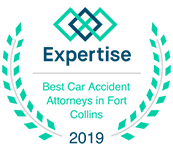Request a Free Consultation | No Upfront FeesSe Habla Español
970-225-2190 |
1-800-664-3151
Recent Blog Posts
What Factors Contribute to Truck Driver Fatigue Accidents in Colorado?

Between Interstates 25, 70, and 76, the Colorado Front Range experiences a significant amount of semi-truck traffic, and the state’s unpredictable weather patterns and often steeply graded roads can increase the risk of truck accidents. Another contributing factor in many truck accidents is driver fatigue, which can cause a driver to fall asleep at the wheel, react more slowly, or make poor driving decisions. If you have been injured in an accident with a drowsy truck driver, understanding why the driver may be fatigued can give you a better chance of receiving full compensation for your damages.
Common Causes of Truck Driver Fatigue
Truck drivers can become fatigued for a number of reasons, some due to the nature of their job, and some due to a failure to follow industry regulations. A few of the most common reasons include:
Can I Receive Compensation if a Car Accident Was Partially My Fault?
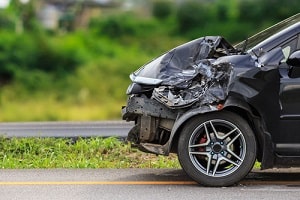
According to the U.S. Department of Transportation’s Fatality Analysis Reporting System (FARS), there were more than 500 fatal vehicle crashes in Colorado in 2018. Not all car accidents lead to fatalities, but they can cause serious to permanent injuries. If you are injured in a car accident caused by another driver, seeking compensation through a personal injury claim is often a clear decision. However, if you believe you were partially at fault for the accident, your options may seem more complicated, and you may wonder if it is even possible to receive any financial relief for your injuries. The good news is that because of Colorado’s negligence laws, you can still be eligible for some compensation as long as your negligence is determined to be less than that of the other involved parties.
What if I Am Injured in a Crash With an Uninsured Driver in Colorado?
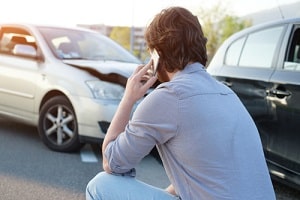
Everyone hopes to avoid being injured in a car accident, but in the unfortunate event that it does happen, one would hope that the other driver’s insurance would at least cover medical bills for any injuries he or she causes. However, recent statistics show that 13 percent of Colorado drivers are uninsured, and many more have policies with the state’s minimum required bodily injury coverage of $25,000 per person injured and $50,000 total, which may be insufficient in cases of severe injuries that result in long-lasting consequences. That is why it is important to seek professional legal advice after being involved in any type of vehicle collision.
Steps to Take After a Crash
If you are injured by an uninsured or underinsured driver, you may feel stress, fear, and uncertainty as to how to proceed, but fortunately, there are a few things that you can do to protect yourself even in this difficult situation. Follow these four tips for ensuring that you receive adequate compensation:
How Does Workers’ Compensation Relate to Unemployment in Colorado?

The topic of unemployment, along with the benefits a worker may be entitled to after being laid off or furloughed, has been garnering increased media attention due to rising rates of unemployment and recent debate at the federal level. Although the spike of unemployment in the United States due to the COVID-19 pandemic has begun to decrease, the Bureau of Labor Statistics reported in June that the unemployment rate across most industries still more than doubles the rate of unemployment from the same time frame in years past. Given our current state of affairs in this country, it is important to consider how workers’ compensation may affect unemployed workers in Colorado.
Can I Receive Unemployment Benefits and Workers’ Comp Simultaneously?
This sudden rise in the rates of unemployment across the country has caused many families a lot of stress and worry, but how does this surge impact those currently receiving workers’ compensation? The number of nonfatal workplace accidents recorded in 2018 exceeded 900,000 according to the Insurance Information Institute (III). Even though the number is sure to be lower in 2020 due to higher than normal unemployment rates and quarantining practices, many people receiving workers’ compensation may find themselves also being displaced by the pandemic.
4 Tips for Coping With Grief From a Catastrophic Injury in Colorado
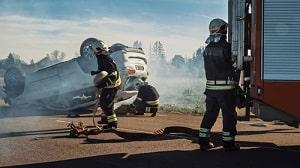
You may have recently heard of catastrophic injuries for the first time, especially with regard to brain damage. Recent discussions within the NFL surrounding traumatic brain injuries (TBI) and chronic traumatic encephalopathy—TBI and CTE, respectively have brought catastrophic injuries into daily discourse and increased awareness of such injuries, many of which are suffered in car accidents. As you may have guessed, catastrophic injuries are among the most severe a person can suffer, including—but not limited to—“… those causing permanent severe functional disability, and those causing severe head or neck trauma with no permanent disability.” While emphasizing head, spine, neck, and brain trauma, many debilitating injuries are included within this category, up to and including death. For victims seeking compensation, an experienced personal injury attorney can help determine if a catastrophic injury was caused by another party’s negligence.
How Can I Protect Myself From Heat Stress on the Job in Colorado?

Summer is often regarded as the time of year when construction projects peak. Regardless of the type of project, orange barrels and caution cones will be a common sight across the country for the next several months. Although summertime may see many construction projects undertaken in earnest, it is also a time when outdoor workers and laborers face increased risks due to heat-related illnesses. According to Occupational Health & Safety (OH&S) magazine, “Productivity decreases by about one percent for every degree the temperature rises above 77 degrees Fahrenheit.” In sweltering 90 degree days, this can lead to substantial reductions in productivity, but also serious heat-related injuries for workers. In Colorado, most employers are required to carry workers’ compensation insurance in the event of a workplace accident.
How to Protect Your Children from Water-Related Injuries This Summer
From the many popular lakes, public pools, rivers, and mineral hot springs, Colorado boasts some of the most varied and exciting waterways in the country. Although pandemic precautions may cause some of these popular pools and swimming spots to operate below capacity—or even close entirely—numerous Coloradoans and their families will find themselves entering the water at some point this summer. Whether boating, kayaking, or swimming, these popular aquatic activities come with their fair share of risks.
You may be surprised to hear that the Centers for Disease Control (CDC) recorded an average of 3,500 non-boating related drownings each year from 2005-2014. Kids are common victims, with drowning listed as the leading cause of death for children ages 0-4. Nonfatal submersion injuries are also very common for young kids. Although they are nonfatal, these submersion injuries can lead to hospitalization, permanent disabilities, or loss of function due to a decrease in oxygen levels in the brain.
4 Ways to Protect Yourself Behind the Wheel Amid Spike In Car Crashes
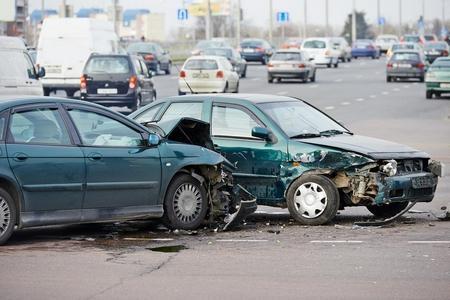 Even though lockdowns and quarantines as a response to the coronavirus pandemic have kept many Coloradoans off the roads, the number of driving citations issued by law enforcement for speeding has not reflected this change. In fact, traffic tickets issued by police for exceeding the speed limit have actually increased with the implementation of statewide isolation orders.
Even though lockdowns and quarantines as a response to the coronavirus pandemic have kept many Coloradoans off the roads, the number of driving citations issued by law enforcement for speeding has not reflected this change. In fact, traffic tickets issued by police for exceeding the speed limit have actually increased with the implementation of statewide isolation orders.
While fewer people are currently on the road, incidents of reckless driving have paradoxically increased, according to the Denver-based news agency, FOX31. Not only do they report a rise in the number of speeding citations issued since 2019, but the number of car accidents has also spiked. The Colorado State Patrol (CSP) reported 6,550 car accidents in the first four months of 2019. Just one year later, this number skyrocketed to approximately 9,600 crashes in the same amount of time — a 70 percent increase in one year.
How Is Disability Defined in Colorado Workers’ Compensation Claims?
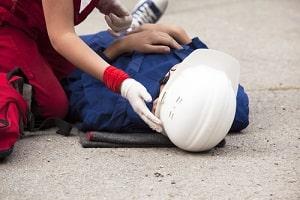
Although Colorado Governor Jared Polis’ “Stay At Home” order officially expired on April 26, many counties and cities in the state have continued to observe restrictions on business in an effort to limit the spread of coronavirus. For many Coloradoans, the return to normalcy will be a much longer time in coming as the Colorado Public Radio reports the COVID-19 pandemic “has erased one in 10 jobs in Colorado.” As heavily affected industries—such as restaurants, construction, and public works—begin to operate again and resume their projects, it may be more important than ever to be vigilant about safety. Workplace accidents occur even in the best of times and to the most cautious of employees. As a number of employees begin to return to work and employee density around construction sites, high-pace workplaces, and hazardous areas increases, accidents can occur. Therefore, it is important to understand disability and how it relates to workers’ compensation claims.
5 Laws That Help Prevent Electric Scooter Accidents in Colorado
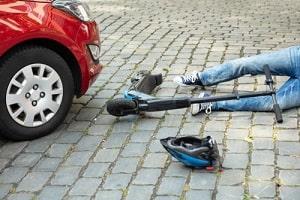
Like them, love them, or downright hate them, electric scooters will not be leaving Colorado anytime soon. By now, you have probably heard of Bird, Lyft, or Lime, three of the most popular e-scooter rental companies. Fundamentally, these companies do not differ much: Customers use a phone application to rent a scooter for a given amount of time by linking some form of online payment. In the last five years, these e-scooters have gone from fun novelty to a major mode of transportation. With such rapid implementation nationwide, this new mode of transportation has spread throughout the United States more quickly than current laws can keep up, leaving many states and cities with a patchwork of hastily adopted legislation. Although the technology of electronic transportation devices such as these is ever-changing, as with any motorized device, there is the potential for accidents with minor to serious injuries. Below are some answers to commonly asked questions regarding e-scooters that can help users stay safe and avoid collisions with other vehicles or scooters.

970-225-2190 | 1-800-664-3151
1403 W. 29th St.,
Loveland, Colorado 80538
Greeley:
3835 W. 10th Street, Unit 100,
Greeley, Colorado 80634|
970-460-2220
Longmont:
353 Main Street, Suite A,
Longmont, Colorado 80501|
720-575-0509
Boulder:
4450 Arapahoe Avenue, Suite 100,
Boulder, Colorado 80303|
303-997-2018
Ft. Collins:
1109 Oak Park Dr Ste 100,
Fort Collins, CO 80525|
970-225-2190
Cheyenne:
109 E. 17th St., Suite #6148,
Cheyenne, WY 82001|
307-227-4051 (By Appointment Only)




